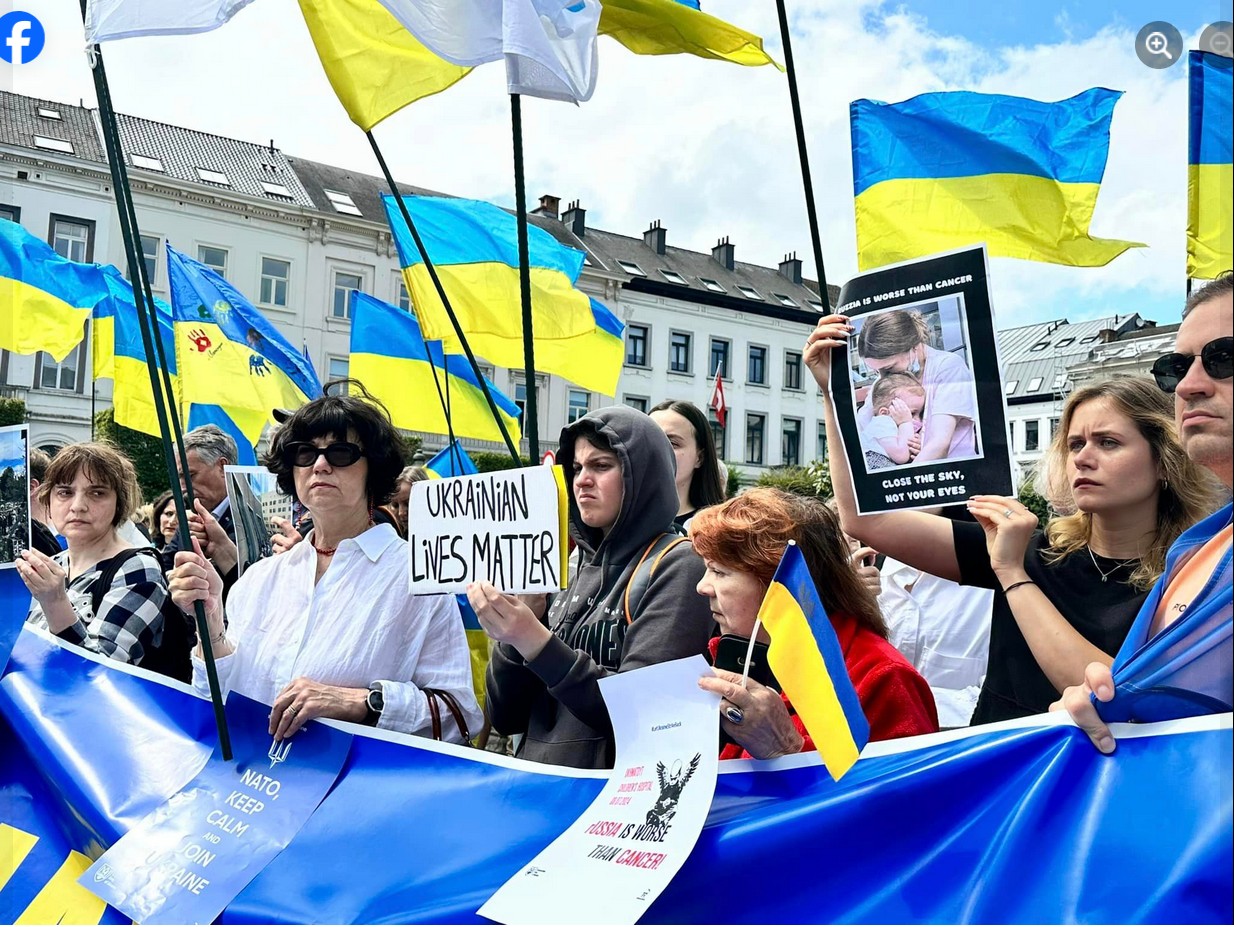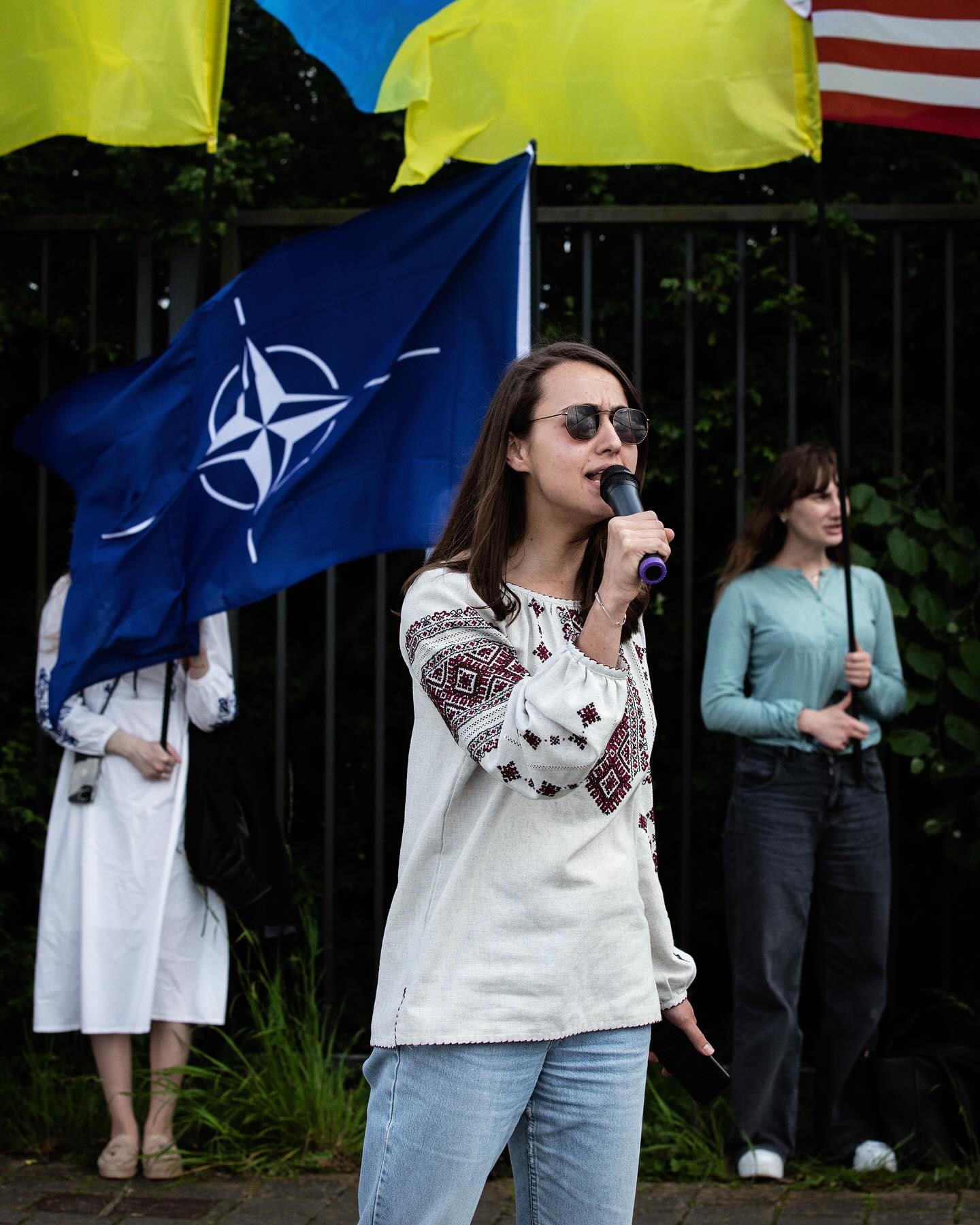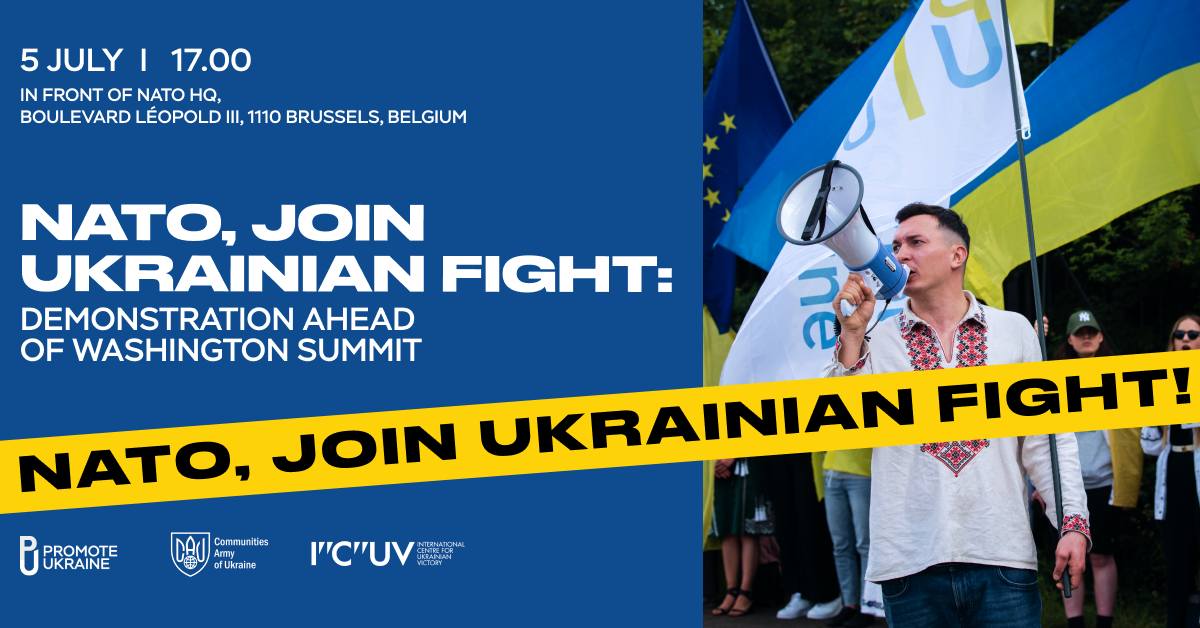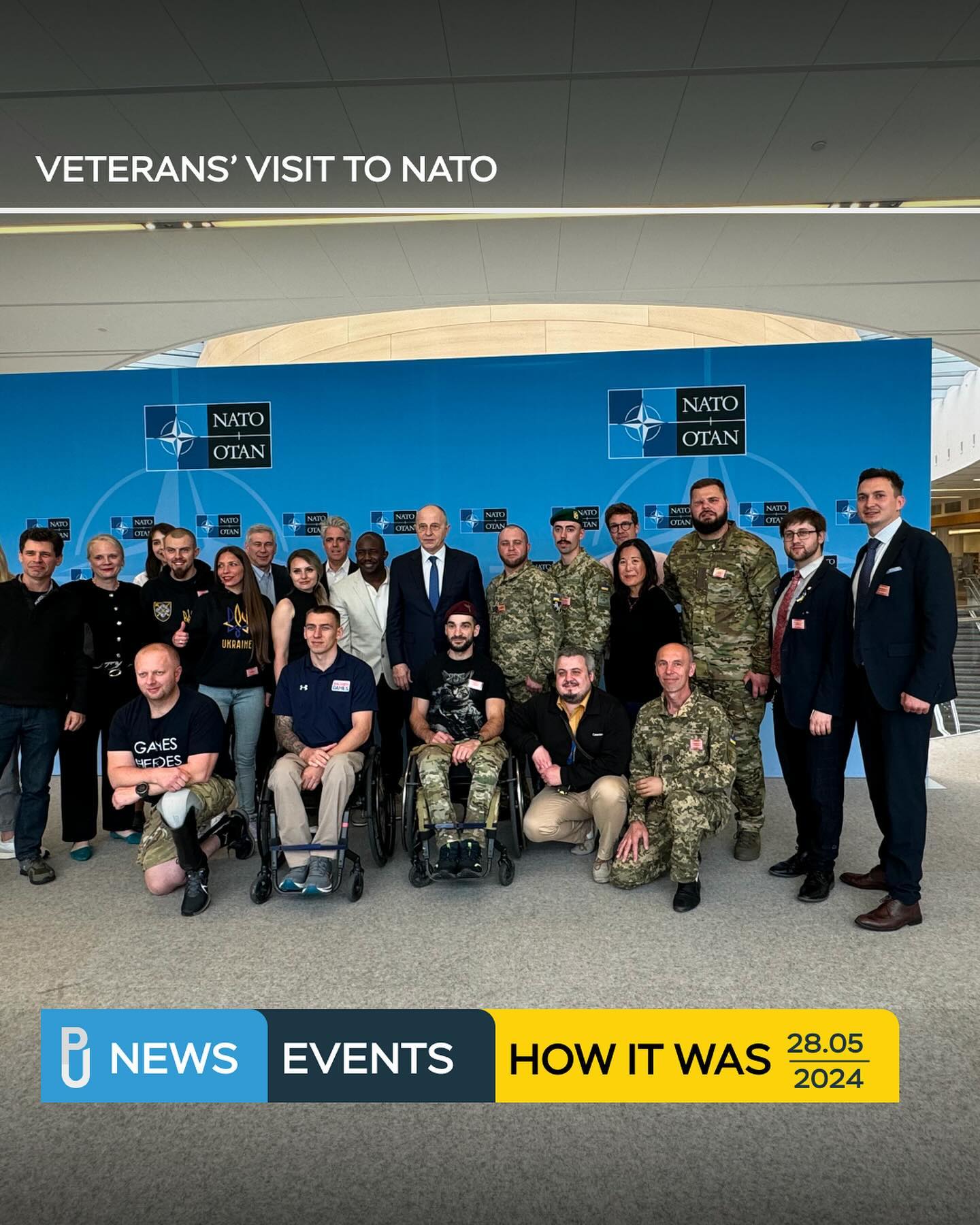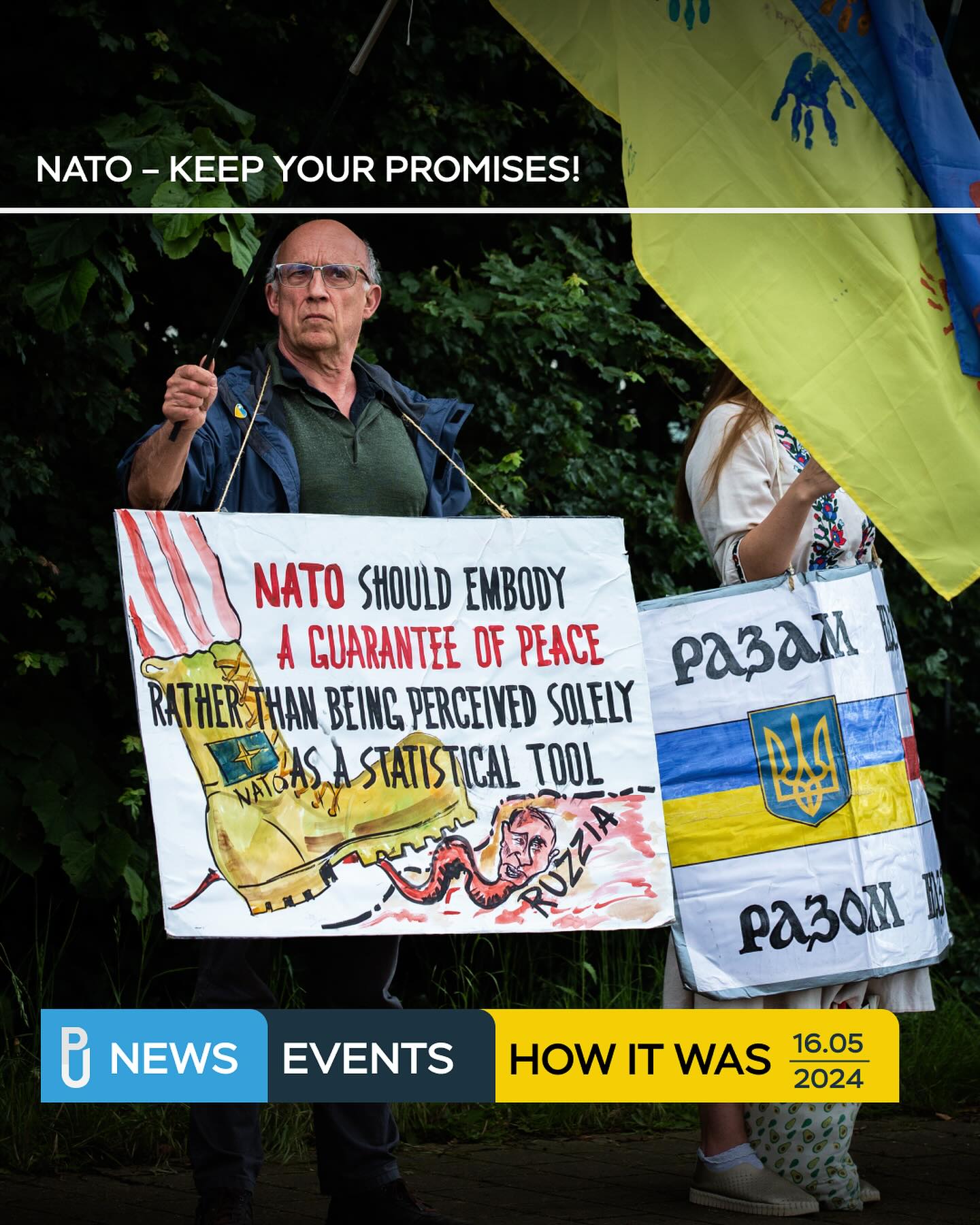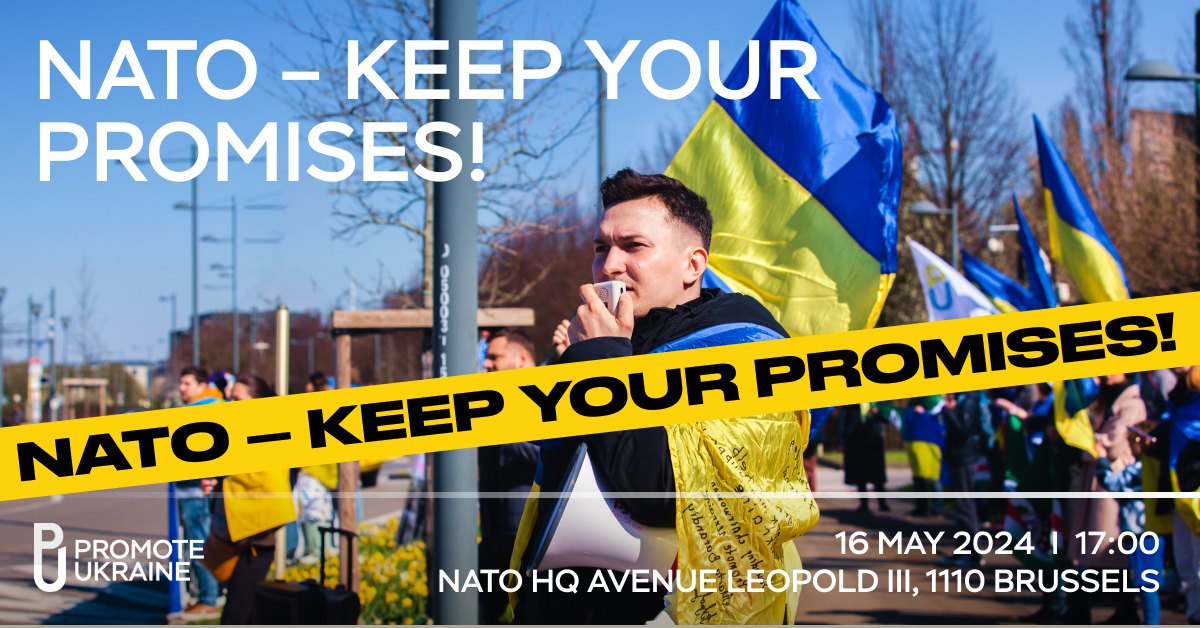The prospect of a positive response from NATO to Ukraine’s admission is presently not realistic. Still, Kyiv deserves to have at least an increased level of cooperation with the Alliance and later on membership because it proves its commitment to NATO values and standards. The first deputy director of Ukraine’s New Europe Center Sergiy Solodkyy said this in an interview with Promote Ukraine. According to him, Ukraine does not deviate from the Euro-Atlantic course after the change of power.
 Sergiy Solodkyy, First Deputy Director of the New Europe Center, is an expert in foreign policy, international relations, and security.
Sergiy Solodkyy, First Deputy Director of the New Europe Center, is an expert in foreign policy, international relations, and security.
Previously, he worked at the Institute of World Policy (2010-2017). Solodkyy graduated from the Westminster University majoring in International Relations and also from the Institute of Journalism of the Taras Shevchenko National University of Kyiv. Since 1999 he has served as an editor of international news desks at the leading Ukrainian newspapers “The Day”, “Gazeta 24”, and “Glavred”.
His comments and interviews are regularly published in the Ukrainian and foreign media. Solodkyy participated in the writing of a number of policy papers and studies on foreign policy issues and regional security.
Research interests: security policy, European and Euro-Atlantic integration of Ukraine, Minsk agreements, Ukraine’s relations with Russia, Germany, Romania and the UK.
Recently the new Defense Minister Andriy Taran made a statement that the adaptation of Ukraine’s armed forces to NATO standards is an unachievable goal. How does this comply with the current course of Ukraine aspiring to join the Alliance?
I assume that there has been a misunderstanding in the interpreting of the Minister’s statement. Probably it was his own fault, as Mr Taran has not made his statement clear enough. If you scrutinise the statement, you will see that, on the one hand, it says that it is not appropriate to adopt all standards. But in general, Ukraine must try to meet NATO standards. That is such a contradiction in a single statement.
But in reality, there is no contradiction if you look at the practice of adapting to standards in NATO countries. Since no country in the Alliance meets 100 per cent of all standards, and there is no such requirement. It is up to each country, and especially the partner country, such as Ukraine, to decide what is needed and what is not needed for itself and for its armed forces in adapting its legislation to NATO standards. I assume that the Minister meant that there is no need to meet 100% of the standards, but we need to achieve practical compatibility of the Ukrainian army with the armies of NATO countries and comply with those standards that Ukraine has set for itself.
Thus can we interpret this situation as “lost in translation”? There was a misunderstanding with this statement, right?
My observations and my communication with government officials show that it was indeed “lost in translation”. Later the Defense Ministry spokeswoman gave further clarification about the Minister’s statements, and these explanations, in fact, reject all of our concerns that were probably reasonable.
Moreover, I can say that last year our centre prepared a document where we analysed Ukraine’s implementation of NATO standards. Our first and main recommendation was that Ukrainian politicians should avoid manipulative statements that the country must meet all standards of the Alliance. We explained that this might create excessive expectations among Ukrainians and too high requirements to implement standards. In reality, all these NATO standards do not need to be achieved. It is not necessary to create high expectations for Ukrainians. We need to be realistic, set realistic goals and meet the standards most needed by Ukraine at present.
Another case of «lost in translation »: the adviser to the Secretary of the National Security and Defense Council of Ukraine Sergiy Syvokho stated that Ukraine could not join NATO because there is a military conflict in its territory. Then Ukraine’s Vice Prime Minister for European and Euro-Atlantic Integration Vadym Prystayko said there was no such requirement in NATO. As far as I know, there is such a requirement. How do you comment on this?
To our knowledge, the application of every new country to NATO is considered case by case. That is, depending on the situation. There is no clear algorithm, no clear criteria for joining NATO. In any case, it is a political decision, political reasonableness. As of now, it is clear that there are many countries in NATO that are afraid of Russia’s reaction, and at least for the moment, they are opposed to Ukraine’s integration into the Alliance.
That’s why it is obvious that if we talk about admission on a case by case basis, then some politicians in NATO countries use political reasonableness that Ukraine should not be admitted to the Alliance for the time being. Although we are aware of many cases when such conflicts took place within NATO countries, this did not stop their membership in the Alliance. Again, this is a case-by-case consideration, and Vadym Prystayko made that clear.
I would not rule out that in the future, the situation will allow Ukraine to become a member of NATO, even if the conflict is not resolved. We have to understand one thing that is of utmost importance to NATO: did the country with the conflict provoke it? Is the country an aggressor? Obviously, it would be a great precaution for the Alliance to admit aggressive countries.
It is clear that Ukraine has become a victim of Russian aggression. Therefore, Ukraine has a clear pro argument why, despite the conflict, the country deserves membership in NATO: because it is a responsible partner, a contributor to security, unlike Russia. Today the Alliance has no questions to Ukraine about its conflict. NATO’s decisions not to support Kyiv’s membership in the Alliance are dictated more by fear of Russia. But again: in history, in political decisions, there is one rule – never say never, everything is possible, and NATO’s experience shows it.
Concerning the fear of Moscow. Just recently, in January, Kyiv asked NATO to be included in «Enhanced Partnership Opportunities” initiative. There seems to be no agreement among the Allies on the issue. What are our chances of getting this status?
I really see no reason why Ukraine cannot be granted this status. Since the initiative includes countries (Sweden, Finland, Australia, Georgia, Jordan – ed.) some of whom Russia definitely does not see as a threat to its security. Probably some countries want to be on the safe side, and they think that even the smallest format of additional cooperation with Ukraine may be aggressively perceived by the Russian Federation.
Yes, we have heard that some NATO member states may have such concerns, although we understand that this is just an additional format for additional cooperation. It is in no way connected with NATO membership, I mean it is not a substitute for NATO membership, it is not a step or a prerequisite for admission. This is simply an additional format of cooperation. Maybe we need to have further negotiations with those governments that have such concerns, and we have to tell them that there are no security threats.
It will also contribute to the further development of Ukraine, the adjusting of the Ukrainian Armed Forces to NATO standards, and the enhancement of NATO-Ukraine interoperability. Thus it will be a contribution to the enhancement and improvement of regional and international security.
Can this partnership nevertheless bring Kyiv closer to the Alliance membership?
It is definitely not an obstacle. Any additional format of cooperation can bring Ukraine closer to NATO. The formats that currently exist between NATO and Ukraine were created back in the 1990s, such as the NATO-Ukraine Commission, they obviously allow Kyiv to communicate with its alliance partners much more effectively. As we know, unfortunately, Hungary is blocking this format, and its functioning is somewhat limited. But let’s hope that Budapest will soon remove its blocking of meetings and negotiations in this format. Indeed such additional formats for communication, for cooperation have a clear effect, giving additional weight for interaction.
Talking of Hungary: can we resolve this problem in the near future?
As far as I know, Ukraine has done its best to convince Hungary that in the educational process there is no violation of the rights of the Hungarian minority in the Transcarpathian region. Ukraine has demonstrated full compliance with the legislation and recommendations of the Venice Commission. Apparently, Budapest has some further expectations.
I suppose representatives of our governments should hold additional consultations in order to somehow debunk these concerns and, perhaps, bloated and unjustified expectations, which are not written in the same Venice Commission recommendations. Therefore, it would be possible to finish this rather long period of misunderstanding in Ukrainian-Hungarian relations.
 Sergiy, every other Ukrainian supports Kyiv’s accession to NATO. That’s a pretty high figure. For example, 60 per cent of Ukrainians want Ukraine to join the EU, there are a bit less NATO supporters but still, it is a lot. Please tell us what are the real chances for us to apply for NATO membership, let’s say, in the next 10 years?
Sergiy, every other Ukrainian supports Kyiv’s accession to NATO. That’s a pretty high figure. For example, 60 per cent of Ukrainians want Ukraine to join the EU, there are a bit less NATO supporters but still, it is a lot. Please tell us what are the real chances for us to apply for NATO membership, let’s say, in the next 10 years?
I do not see any problem in submitting this application. But the question is not about such symbolic steps, but about how close we really are to receiving a “yes” answer. We have to be realistic that the prospect of such a positive answer is rather minimal and illusory at the moment.
That’s why I may support the policy of Ukrainian diplomacy and those politicians that prefer practical steps, the closest possible approach to NATO standards, and the achievement of full compatibility of the Ukrainian army with the armed forces of the Allies. So, at a politically advantageous moment, we could become a NATO member almost overnight.
Happily, we see that there are no obstacles facing Kyiv, like, for example, it was in 2008, when, in fact, the Alliance denied Ukraine and Georgia a NATO Membership Action Plan. We see that today the counter-arguments that NATO has put forward are groundless. What is it all about? For example, they said at the time that NATO was a democratic alliance and that support by the citizens of a country’s membership in NATO was important and the alliance countries take it into account.
In Ukraine, as we remember, support of NATO did not even exceed 30 per cent at that time; it was 20 and a bit. This is a pretty low figure. Of course, today our partners at NATO can no longer appeal to this criterion because, as you rightly said, half of Ukrainians are in favour of their country’s membership in the Alliance. But if we talk about the number of Ukrainians who will vote in favour of joining NATO during a referendum, this figure will be even higher.
Thus Ukraine fulfils the criteria of democracy and support for membership of the Alliance by its citizens. Another obstacle was that Ukraine was only verbally fulfilling its obligations to move closer to NATO standards. But today we see that the country is not just in theory, but actually proving its commitment to integrate into the Alliance, that it meets the appropriate standards. Ukraine is not afraid to set new goals and conditions to achieve them. Over the last two years, Ukraine has implemented more than 200 NATO standards – 222, to be exact. It is important to understand one point here.
Ukraine and the Alliance signed so-called Partnership Goals in 2018, and these goals have provided 219 normative documents that set out appropriate standards for the country to work on, it can adapt and implement some of them. So, out of 210 normative documents that Ukraine has decided to work on, 80 have been implemented. That is approximately 36 per cent. It seems like a small indicator. However, Ukraine also implemented standards that were not included in Partnership Goals. There are more than 100 of such standards: 145 regulatory documents have been introduced. What does this mean?
It means that Ukraine is adapting these standards not just to check the box, not for demonstrating any favourable figure. They could have fulfilled 200 of the 219 standards and have said: look, 90 per cent of the goals are met. But we see that the country is committed to practical steps towards NATO integration. We are demonstrating quite strong indicators and a positive example, which should also serve as an additional argument in our negotiations with NATO, that we deserve to have at least an increased level of cooperation with the Alliance and, in the future, membership itself since we prove our commitment to the Alliance’s values and standards.
NATO is very supportive of Ukraine in the Russian-Ukrainian conflict. Apart from solidarity, are there any practical steps taken by the Alliance to help Ukraine?
I would say that political support is also very serious support. We see that Russian propaganda fights for every positive signal, sometimes not even justified, coming from Western politicians when they say: why not bring Russia back to the Group of Seven, to restore the format of the Group of Eight. Russian propaganda is making a big deal out of it, saying that the West has finally begun to support Russia.
Sometimes we see the political support of the West, of NATO as a certainty, although it is not really a certainty, and that should be appreciated. This is essential fundamental support, which is being introduced into a variety of support instruments, which may also be perceived by Ukrainians as a given, though it should not be like this. It is also about relevant trust funds, which provide serious funding for Ukraine. We say here about the willingness of the Alliance, which has been proven in practice, to share its best practices and to advise Ukrainians on how to adapt their legislation and, accordingly, to bring the Ukrainian army up to NATO standards.
These standards are one of the best ones. We understand that in fact, the strengthening of the Ukrainian army is the most important condition for resisting Russian aggression. So even if NATO is not ready now to start direct military counterefforts against Russian aggression, but the Alliance has a lot of indirect actions, counteraction to Russian aggression. Again, let’s not forget that much is being done on a bilateral level.
There are NATO countries that disagree with some actions supported from the whole Alliance, but individual NATO countries – the United States, Canada, the United Kingdom – do quite a lot, they support our army, allocate a lot of money, their advisors train Ukrainian military people. That is, support is quite serious, and it can be even greater. And if you compare all the steps that were taken in cooperation with NATO from the ’90s, even starting from pre-revolutionary years, before 2014, then you see that the changes of interaction are striking.
The pace of Ukraine’s rapprochement with NATO and the Alliance’s standards is also stunning. Now we actually see changes at the political level of the worldview, when rapprochement with NATO is informal, it is not at the level of declarations, statements, and when we say that we want to be in the Alliance. No, it is at the level of preparing very meticulous, very scrupulous documents with clear commitments, criteria and results that Ukraine is going to achieve. Most recently, the government approved a new annual national plan, yet to be signed by the president. For me, this plan is very progressive, and it really details very clearly the goals that Ukraine needs to achieve in various sectors of its cooperation with the Alliance.
Can you say that with the new power Ukraine has not slowed the pace of NATO integration?
For the moment no. I see no sign of any change in Ukraine’s cooperation with NATO. Again, we know the history of Ukraine’s engagement with NATO. We know all the zigzags that took place before: when for one year we wanted to join the Alliance and then for six months we did not want to join and then again wanted to join and then again did not want to join, we remember this well. Accordingly, I still hear from our partners in NATO countries: will it not be the same as it was, for example, under Kuchma, when the country turned its back to NATO, and it is obvious that such precautions, such questions, are justified.
But now I do not see any sign of deviation from Ukraine’s implementation of the pro-European and Euro-Atlantic course. But as a non-governmental sector, we must keep a close watch on Ukraine’s commitments, including the constitutional issues, so that the government does not deviate from it. Moreover, we know that the Ukrainian president pays a lot of attention to opinion polls. As we already mentioned, in fact, half of Ukrainians support this course, and more than half will vote in a referendum for Ukraine’s accession to NATO. Therefore, a democratically elected president is obliged to implement this democratic course of accession to the North Atlantic Alliance.
There is one point: post-Soviet trends are still strong in the Ukrainian establishment; some of its representatives want to make a decision that does not quite fit NATO’s practices, values and standards. For example, Ukraine and NATO have been negotiating for a long time how to reform the Security Service in Ukraine. These days a respective bill has been submitted to the Verkhovna Rada, and we already know that it does not fully meet the expectations and recommendations of the Alliance. Of course, these things show a kind of “breakdown” of Ukraine’s state apparatus on the way to NATO. But the task of the non-governmental sector and our partners in the North Atlantic Alliance is to give a hint, and sometimes, maybe push the powerholders so that they do not take steps, do not make decisions that can dissuade Ukraine from joining NATO.
Interview by Natalia Richardson for Promote Ukraine.
 Natalia Richardson is a Ukrainian journalist specialized in European affairs. Since 2001 she has been working in Brussels. She was a staff correspondent of the Ukrainian newspapers “Vechirniy Kyiv” and “Den”, radio Deutsche Welle, Radio Free Europe / Radio Liberty. She was a European Affairs Correspondent at the Brussels office of Euronews TV channel from the start of the Ukrainian service until its closure – from 2011 to 2017.
Natalia Richardson is a Ukrainian journalist specialized in European affairs. Since 2001 she has been working in Brussels. She was a staff correspondent of the Ukrainian newspapers “Vechirniy Kyiv” and “Den”, radio Deutsche Welle, Radio Free Europe / Radio Liberty. She was a European Affairs Correspondent at the Brussels office of Euronews TV channel from the start of the Ukrainian service until its closure – from 2011 to 2017.
Natalia had internships at Katholische Medien Akademie in Munich, newspapers Frankfurter Allgemeine, Hannoversche Allgemeine, and the UN Headquarters. She graduated from the Institute of Journalism at the Taras Shevchenko National University of Kyiv and holds a Master’s Degree in European Integration from the Vrije Universiteit Brussel and a Master’s Degree in Marketing and Communications from the Ichec Brussels Management School. Besides Ukrainian, she speaks English, Russian, French, Dutch and German.






 UA
UA FR
FR DE
DE
